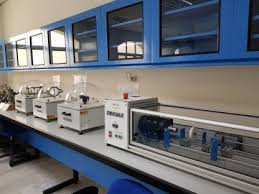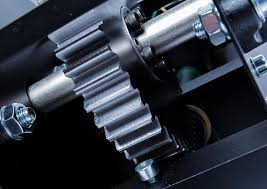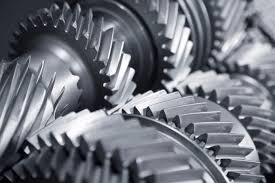Experiment 2: Displacements, velocities, accelerations and forces of the Piston System
AIMS
1.To become familiar with program package Working Model 2D displacements, velocities, accelerations and forces graphs and values.
2.To study piston behaviour.
3.To compare theoretically calculated values of velocities, accelerations and forces of the piston with results produced by Working Model 2D Program Package.
ENGR 2752 Mechanics Of Machines Assignment- Flinders University Australia.

INTRODUCTION
1.Equipment
. PC computer, USB stick.
EXPERIMENTAL PROCEDURE:
Task 1:
From the PC program tool bar choose file path Working Model 2D\Working Model 2D Files\Demo Files\Piston 2. wm2d and open it.
Once the file is open the following window will appear:

1.Save the file as PISTON.wm2d file on your USB memory stick.
2.Please follow the instruction below.
Step 1: By selecting the blue cylinder of the piston using Working Model 2D obtain x- component of displacement, velocity, acceleration and force versus time plots and values for the Piston in the point C (see Figure below) at 75rpm and present them using Excel. Determine the period T for 75 rpm constant angular velocity of the crank and compare it with a program package result.

For the first half of the period observe following points related to the crank positioning angles of: 00, 20o, 40o, 60o, 80o, 100o, 120o, 140o and 160o.
For each of these angles present using piston system figure linear velocity and acceleration in point C extracted from Working Model2D showing each vector direction and amplitude. All obtained Figures for each individual crank angle should be inserted in you report.
Step 2: By using relative velocity and relative acceleration methods calculate values of linear velocity, linear acceleration and force in point C for all nine crank angles. Using the table of comparison present results obtained by relative velocity and relative acceleration methods and compere them with simulated values calculated by Working Model2D.
ENGR 2752 Mechanics Of Machines Assignment- Flinders University Australia.

Step 3: By selecting the point B of the crank using Working Model 2D (see Figure above) obtain x and y-components of displacement, velocity, acceleration and force versus time plots and values for the Piston in the point B at 75rpm and present them using Excel.
For the first half of the period observe following points related to the crank positioning angles of: 00, 20o, 40o, 60o, 80o, 100o, 120o, 140o and 160o.
For each of these angles present using piston system figure linear x and y- components of linear velocity and acceleration in point B extracted from Working Model 2D showing each vector direction and amplitude.
All obtained Figures in point B for each individual crank angle should be inserted in you report.
Step 2: By using relative velocity and relative acceleration methods calculate x and y- components of linear velocity, linear acceleration and force in point B for all 9 crank angles. Using the table of comparison present results obtained by relative velocity and relative acceleration methods and compare them with simulated values calculated by Working Model2D.

Step 4: Explain how the program package results match with a theory and if not why not?
Create conclusion sub-chapter of your report and present all findings of the analysis with few paragraphs using dot point structure.
Calculations using relative velocities and accelerations methods could be attached in an Appendix at the end of the report.
At the end of the report create overall conclusion and present all relevant findings.



